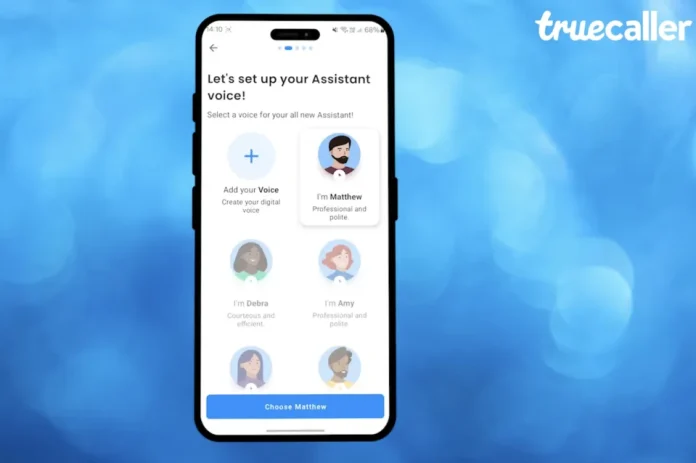Truecaller, a popular caller ID app known for its call blocking and recording features, has teamed up with Microsoft to offer its users a unique way to create an AI assistant that uses their own voice. This new feature leverages Microsoft’s Azure AI Speech technology, allowing users to generate a custom digital assistant that sounds just like them.
Truecaller introduced its AI assistant in 2022, which could answer and screen calls for users, offering a selection of preset voices. Now, with the integration of Azure AI Speech’s personal voice capability, users can create a digital assistant with their own voice. To set this up, users need to record themselves reading a consent sentence and a training script. This recording helps the technology capture their speaking style and create a convincing digital audio replica.
In a product demo presented by Truecaller Product Director and General Manager Raphael Mimoun, his AI assistant answered a call with, “Hi there! I’m digital Raphael Mimoun! May I ask who’s calling?” After identifying the caller, the assistant inquires if the call is urgent or can wait before deciding to push it through.
“By integrating Microsoft Azure AI Speech’s personal voice capability into Truecaller, we’ve taken a significant step towards delivering a truly personalized and engaging communication experience,” Mimoun said in a statement. However, this innovation might feel unsettling or even creepy for some callers who interact with a robotic version of their friend or colleague.
Microsoft showcased the personal voice capability of Azure AI Speech at the Build conference, where it also announced that digital creativity company Wondershare will integrate this feature into its video editing tools. Wondershare users will be able to create AI assistants with their voices for use in creating audiobooks and podcasts.
This collaboration marks a significant advancement in personalized communication technology, offering users more control over their digital interactions.








